When entering the housing market as a buyer, there’s a ton of information thrown your way. One area of knowledge critical to buying a home is financing—it’s essential to know the different mortgage loan types available.
Knowing about and understanding the options available can help you navigate what kind of home you can afford and determine the type of mortgage that best suits your needs.
Categories of loans
Keep in mind: there are two main categories of home loans.
- Conforming loans. (Conventional loans, fixed-rate loans, adjustable-rate mortgages)
- Non-conforming loans. (Government-backed loans, jumbo loans)
A conforming loan is a conventional mortgage that can be purchased by a major institution (Fannie Mae or Freddie Mac). It must meet standards set by the Federal Housing Finance Agency; these loans have set requirements and are considered less risky.
A non-conforming loan is a mortgage that doesn’t meet those FHFA standards and often has less strict guidelines. They appeal to borrowers who have lower credit scores, less money to put down, or want to borrow more money.
Conventional Mortgage
Quick summary: for primary, investment, and vacation homes.
Conventional mortgages are the most common type of mortgage loan. They are great for borrowers looking to buy a primary home, invest in an additional property, or purchase a vacation home.
These loans typically have a strict set of regulations regarding credit scores (a 620 minimum to qualify) and debt-to-income ratios. However, they don’t need as much of a down payment. Buyers can put down as little as 3% on a house, but private mortgage insurance (PMI) is required for down payments under 20% of the home’s total cost. PMI’s are added onto a home’s monthly mortgage payment, increasing the amount; many people aim for that 20% down to avoid that extra cost.
In general, conventional loans are most advantageous for buyers who want to take advantage of lower interest rates and can come up with a larger down payment.
A conventional loan can either have a fixed or adjustable interest rate.
Fixed-rate mortgage
Quick summary: unchanging monthly payments for any kind of loan (conventional, non-conforming, etc.).
A fixed-rate mortgage has the same interest rate and payment amount throughout the loan’s entire life. They are a predictable and steady amount that only fluctuates due to property tax or insurance rate changes.
If you are buying a property you expect to live in for a long time, this is an ideal mortgage loan type, as it can help you budget and plan long-term. However, it also means that you can be stuck with a higher interest rate if rates are high in your area. Refinancing is an option, however, after six months.
Adjustable-rate Mortgage (ARM)
Quick summary: the opposite of a fixed-rate mortgage, an ARM has fluctuating interest rates that move with the market rate.
Adjustable-rate mortgages start with an introductory period where the rate is fixed for either 5, 7, or 10 years; this start-up period locks in a rate on the lower end of the spectrum. After that, the interest rates change based on the market interest rates; if the market’s rates are up, yours will go up, and vice versa. There’s a rate cap so that if the market rates skyrocket, you only have to pay at the top of your cap.
An ARM is ideal for starter or more temporary homes but can be risky after the introductory period.
Government-backed Loans
Quick summary: these loans are backed and insured by government agencies.
Each loan type has specific criteria and provides options for borrowers who don’t meet the requirements of conventional loans. Several loan options are borrowed from the government, including:
- VA loan. This program for veterans doesn’t require any money as a down payment, with lower interest rates than most other loan types.
- FHA loans. These are insured by the Federal Housing Administration and are helpful for lower credit scores and less money for a down payment.
- USDA loan. The US Department of Agriculture backs these loans, allowing buyers to borrow with no money down; income and geographical requirements are necessary.
Jumbo loan
Quick summary: for borrowing larger amounts over the conforming loan limit.
A jumbo loan is worth more than the other loan standards in your area, usually for high-value properties. These can be harder loans to qualify for and require a higher credit score and lower debt to income ratio.
Something to remember: you don’t need to have all the answers. Be sure to meet with a professional who is best suited to guide you toward the mortgage that best suits your needs.
Ready to buy?
If you’d like to learn more about the buying process, connect with the team at Sopris Realty today. Contact us online or give us a call at 970-945-7677.

